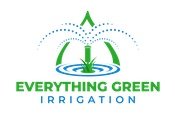Sustainable Irrigation Practices for a Greener Landscape
Water conservation and sustainability are becoming increasingly important topics for homeowners and businesses alike. With concerns about water scarcity and the impact of human activities on the environment, it's more important than ever to adopt sustainable practices in all areas of life, including landscaping and irrigation. In this blog post, we'll explore some of the key sustainable irrigation practices that can help you conserve water, reduce waste, and promote a greener, healthier landscape.
Drip Irrigation
Drip irrigation is a highly efficient and precise method of watering plants that delivers water directly to the root zone, minimizing evaporation and runoff. Drip irrigation systems use a network of tubing and emitters to distribute water, which can reduce water usage by up to 50% compared to traditional sprinkler systems. Additionally, by delivering water directly to the root zone, drip irrigation promotes deeper root growth and healthier plants.
Rainwater Harvesting
Rainwater harvesting is the process of collecting and storing rainwater for later use in irrigation or other non-potable applications. This practice can help reduce water usage and promote sustainability by providing an alternative water source that is free and abundant. Rainwater harvesting systems can range from simple rain barrels to complex cisterns, and can be customized to meet the specific needs of your landscape.
Soil Moisture Sensors
Soil moisture sensors are devices that measure the amount of moisture in the soil and communicate this information to the irrigation controller. This allows the controller to adjust watering schedules based on real-time data, preventing overwatering and reducing water waste. By avoiding overwatering, soil moisture sensors can also promote healthier plants and prevent issues like root rot and fungal diseases.
Plant Selection
Choosing the right plants for your landscape can also play a role in sustainable irrigation practices. Selecting drought-tolerant plants that are adapted to your local climate can reduce irrigation needs and promote water conservation. Additionally, grouping plants with similar water needs together in zones can allow for more precise irrigation and prevent water waste.
Irrigation System Maintenance
Proper maintenance of your irrigation system is essential for promoting sustainability and reducing waste. Regular inspections and repairs can prevent leaks and other issues that can lead to water waste. Additionally, upgrading to more efficient components, such as low-flow nozzles and pressure regulators, can further reduce water usage and promote sustainability.
Conclusion
By adopting sustainable irrigation practices, homeowners and businesses can promote water conservation, reduce waste, and create a greener, healthier landscape. From drip irrigation and rainwater harvesting to soil moisture sensors and plant selection, there are a range of solutions available to help you achieve your sustainability goals. If you're looking to upgrade your irrigation system, consider these eco-friendly practices and how they can help you create a more sustainable landscape.
